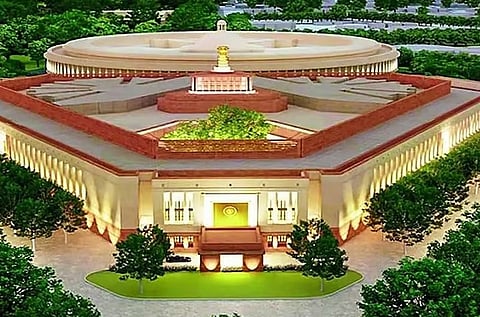

An amount of Rs 4,391 crore has been allocated towards deployment of 14,028 e-buses under the PM E-DRIVE Scheme. This will result in significant reduction in emissions, Bhupathiraju Srinivasa Varma, minister of state for heavy industries told the Rajya Sabha.
Initially, nine cities with population of more than four million namely Mumbai, Delhi, Bengaluru, Hyderabad, Ahmedabad, Chennai, Kolkata, Surat, and Pune will be targeted under the scheme, he added.
Under the FAME-II Scheme, a total of 494 fast EV charging stations (EVCS) with a capacity of greater than or equal to 60 kW have been installed in the state of Andhra Pradesh. Of these 95 EVCS have been commissioned as on July 1, 2025.
Under FAME-II, there are no chargers in Andhra Pradesh with capacity of less than 60 kW. All chargers installed under the FAME-II Scheme are public chargers, accessible for use by the general public. Private EVCS are not included in FAME-II, Varma told the Rajya Sabha.
The total number of dengue & chikungunya cases decreased till June 2025, as compared to the corresponding period in 2024. However, cases marginally increased in some states and Union territories, Anupriya Patel, minister of state in the Union Ministry of Health and Family Welfare (MoHFW) told the Lok Sabha.
Cases of other vector-borne diseases like Malaria (till May) and Kala-Azar (till June) marginally increased in some states/Union territories due to enhanced surveillance and paperless reporting on Integrated Health Information Platform (IHIP) in 2025, as compared to the corresponding period in 2024. Notably, there is no increase in the number of Japanese Encephalitis cases in 2025 (till June), as compared to the corresponding period in 2024.
Eighty-three Zika virus cases were reported across India in 2024 as reported by states on the IHIP portal, Prataprao Jadhav, minister of state in the MoHFW told the Lok Sabha.
In Uttarakhand, an area of 4,774.65 hectares has been affected by crop losses with losses amounting to Rs. 699.72 lakh. Odisha has paid Rs.15.39 crore out of its State Disaster Response Fund to farmers, Ramnath Thakur, minister of state for agriculture and farmers welfare told the Rajya Sabha.
The government has implemented the Indian Council for Agricultural Research flagship network project ‘National Innovations in Climate Resilient Agriculture’ (NICRA) to study the impact of climate change on agriculture including crops, livestock, horticulture and fisheries.
The study revealed that in the absence of adaptation measures, climate change is likely to reduce rain-fed rice yields by 20 per cent during the 2050s and 10-47 per cent during the 2080s. Irrigated rice yields are projected to be reduced by 3.5 per cent during the 2050s and five per cent during the 2080s.
Wheat yield is also likely to be reduced by 19.3 per cent during the 2050s and 40 per cent during the 2080s. Kharif maize yields are projected to be reduced by 10-19 per cent during the 2050s and more than 20 per cent during the 2080s, Bhagirath Choudhary, minister of state for agriculture and farmers welfare told the Rajya Sabha.
Presently, 142 sewage treatment plants, 86 effluent treatment plants and 203 material recovery facilities have been installed and commissioned, on need basis, at a number of railway stations across India.
Bio-toilets have been fitted in all passenger coaches to prevent falling of fecal matter on railway tracks. Single use plastic has been banned in Indian Railways. Plastic bottle crushing machines are installed at 531 stations as per requirement, Ashwini Vaishnaw, minister of railways, information & broadcasting and electronics & information technology told the Rajya Sabha.